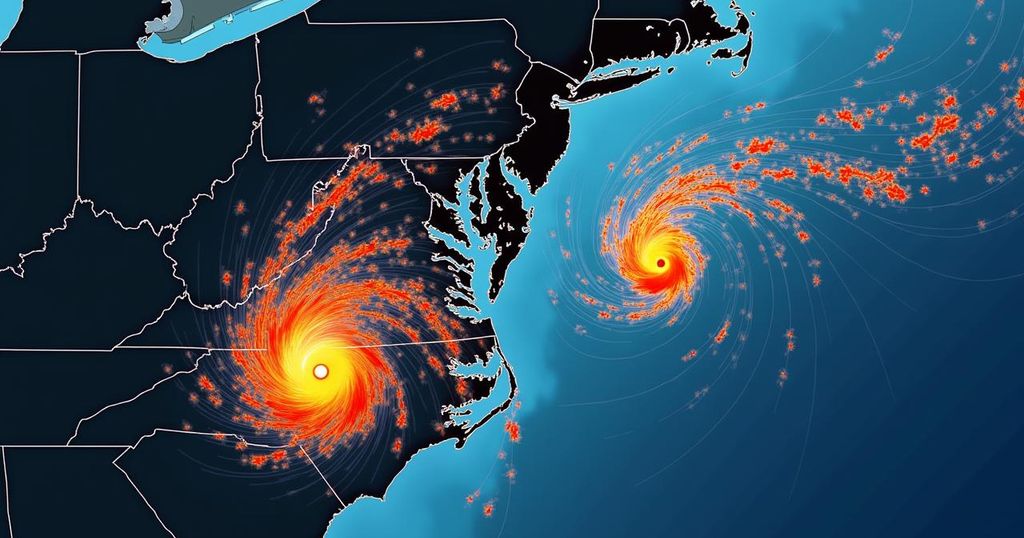Hurricanes can cause significant storm spinoffs far from their point of origin, as recently seen with Hurricane Helene affecting Virginia and North Carolina through heavy rainfall and flash flooding. Experts note that intense rainfall in urban and mountainous regions can lead to severe flooding events. Continued research on evacuation orders aims to improve responses to such hazardous situations.
Hurricanes in the Gulf of Mexico can have wide-reaching effects, triggering severe weather phenomena in states like Virginia and North Carolina. The recent impacts of Hurricane Helene have resulted in extensive road closures, power outages, and significant flooding in mountainous regions. According to Majid Shafiee-Jood, a research assistant professor at the University of Virginia specializing in civil and environmental engineering, hurricanes possess rapid rotation and can produce vast amounts of moisture, leading to persistent rainfall and potential flash floods in areas far from the storm’s center. Flash floods occur when there is excessive rainfall in a short duration, especially in urban or mountainous regions. Urban development limits the ground’s capacity to absorb water, while saturated soils in mountainous areas can rapidly result in flash floods, mudslides, and landslides following intense rainfall. Shafiee-Jood highlights that this situation has been addressed previously, as seen during Hurricane Michael in 2018, which resulted in similar flooding events in the Carolinas after its landfall. Shafiee-Jood is also a contributor to the first-ever hurricane evacuation order database, aimed at analyzing how individuals and emergency managers respond to hazardous weather information. For instance, prior to Hurricane Helene’s landfall, various Florida counties issued evacuation orders. It is crucial to evaluate the effectiveness of these evacuation orders and understand the public’s response in critical situations. Shafiee-Jood’s ongoing research seeks to quantify the adherence to evacuation orders issued by emergency management institutions across different states and counties.
The phenomenon of hurricanes causing storms and flooding in distant states is not uncommon. Hurricanes, as massive rotating storm systems, can transport large amounts of moisture across great distances, resulting in heavy rainfall that leads to flash floods in areas far from the coast. The effects are particularly severe in urbanized regions and mountainous terrains, where drainage can be inhibited and saturation plays a significant role in runoff. Understanding the relationship between hurricanes and these subsequent weather events is essential for future preparedness and response strategies.
In summary, the influence of hurricanes on rain and flooding in regions such as Virginia and North Carolina exemplifies the far-reaching consequences of these storms. Research by experts like Majid Shafiee-Jood informs our understanding of how flooding occurs and how effective evacuation strategies might be improved. The ongoing analysis of evacuation responses will be critical in enhancing safety measures and readiness as future storms approach.
Original Source: news.virginia.edu






